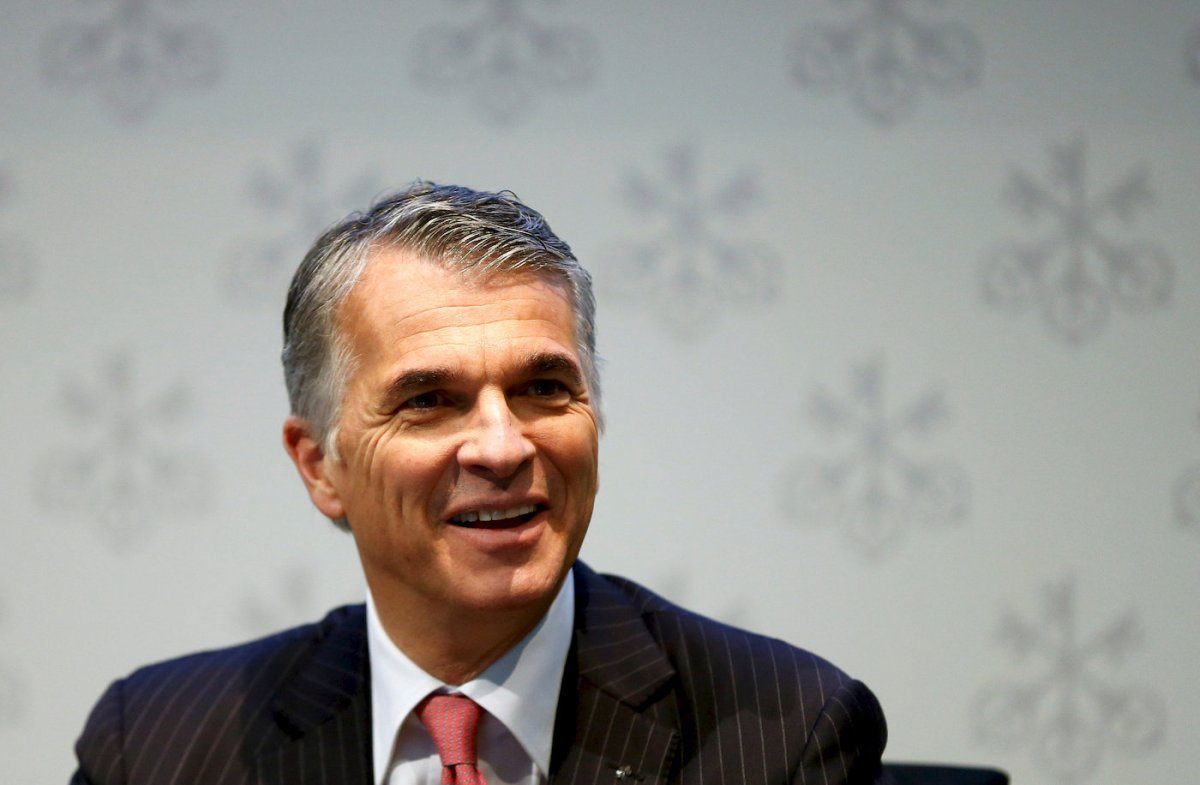By Joshua Franklin and Anjuli Davies
LONDON (Reuters) – UBS “Talks and conversations are going through between banks on how to move to the next level. It’s slower than I would consider … necessary,” Ermotti said at the Swiss bank’s results presentation. “I’m positive that, like many other industries … we’ll have to converge together to share economies of scale,” he said, adding that convergence did not necessarily mean mergers. Some teamwork has already started.
Among the most advanced is Symphony, a two-year-old project to cut down the number of communications systems banks use. Eighteen banks and asset managers have invested in development of the new messaging platform to rival alternative services such as Instant Bloomberg and Thomson Reuters’ Banks are also collaborating on a centralized data platform called Clarient Entity Hub, in a push for greater transparency and standardization of ‘know your client’ regulatory demands.
But rising costs are pressuring banks to do more.
Despite years of apparent belt-tightening, operating costs at Europe’s top seven investment banks have increased by a quarter since 2007, according to data collated for Reuters by research firm Tricumen. As operating revenue fell to $72 billion in 2015 from $81.5 billion in 2007, the amount of the banks’ income eaten up by costs has risen to 88 percent from 62 percent, the data showed.
High costs are in part due to hefty writedowns and payouts for litigation for a series of financial scandals.
Record-low interest rates, penalties for hoarding cash with central banks, tough financial markets and conservative trading, have made the situation worse still.
“Cost at an investment bank is basically driven by three factors: people, technology and real estate,” Barclays CEO Jes Staley recently told analysts.
And Ben Shepherd, a partner at management consultancy Oliver Wyman’s financial services practice, believes some banks opted for quick fixes to cut costs immediately instead of looking for deeper organizational savings. Others share this view. “The easy kills (in cost cutting) have been done … there’s something over and above this that needs to be done,” said Radi Khasawneh, head of capital markets research at Boston Consulting Group. HOLD-UP
Now industry experts and consultants say banks need to team up to share costs in areas where there is little distinction between offerings. This includes payment services as well as processes for credit, securities and anti-money laundering. Banks and other financial firms are still looking at where exactly they might club together but industry consultants say collaboration could extend to property, with banks in some centers in Britain and United States already open to sharing office space. Meanwhile financial services companies around the world are busy seeking to develop blockchain, or distributed ledger technology for automating the handling of transactions, with advocates saying it has the potential to save billions of dollars in costs and speed up transaction times. For example, last week an HSBC and Bank of America Merrill Lynch venture and financial technology firm R3 said that they had created ways of using blockchain technology to simplify trade finance processes. And in May Credit Suisse joined Barclays in signing up to a platform operated by financial services technology firm FIS enabling the outsourcing of post-trade derivatives operations as more banking products become accepted for central clearing. Hitherto banks have been reluctant to deepen collaboration in part due to rivalry. They have also often been unwilling, as they grapple with painful restructurings, to make investments that will bear fruit only in several years. But Shepherd believes the potential benefits of sharing resources mean change is only a matter of time.
“The market will look a lot more (like a) shared-service set-up in five or 10 years from now,” he said.
($1 = 0.8947 euros)
(Additional reporting by Olivia Oran in New York; Editing by John O’Donnell, Greg Mahlich)
Hard times seen bringing European banks closer together

By Joshua Franklin and Anjuli Davies















